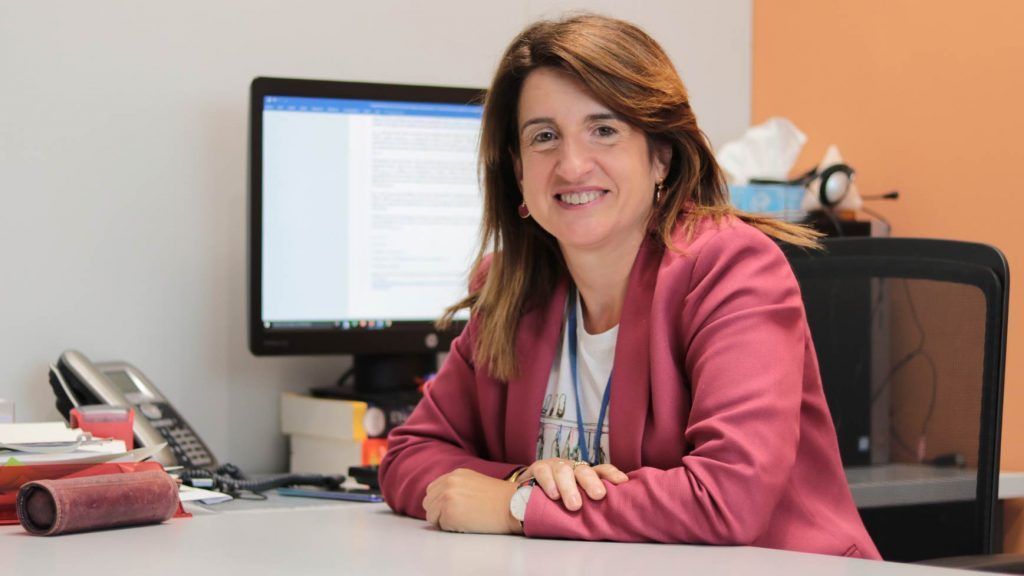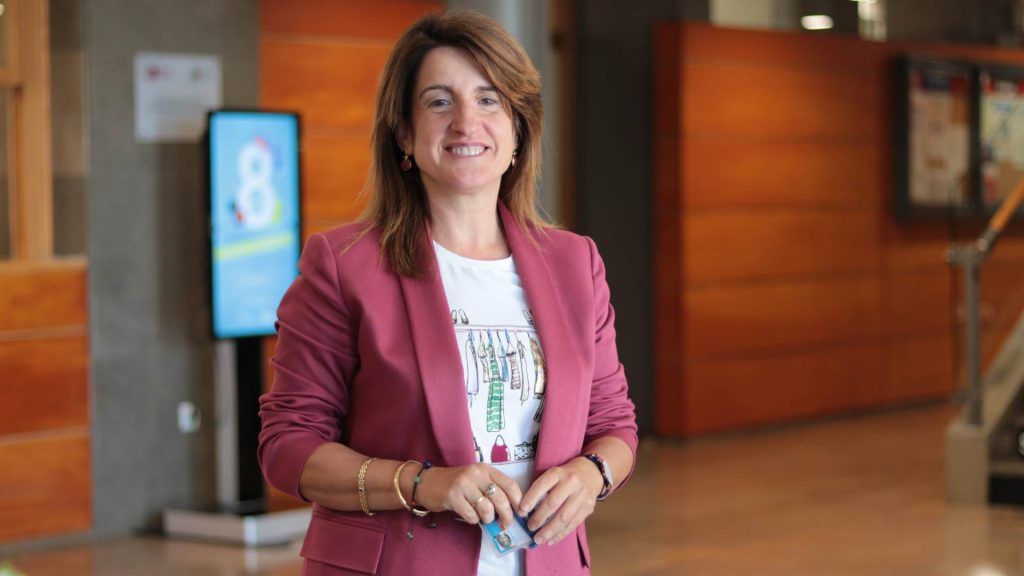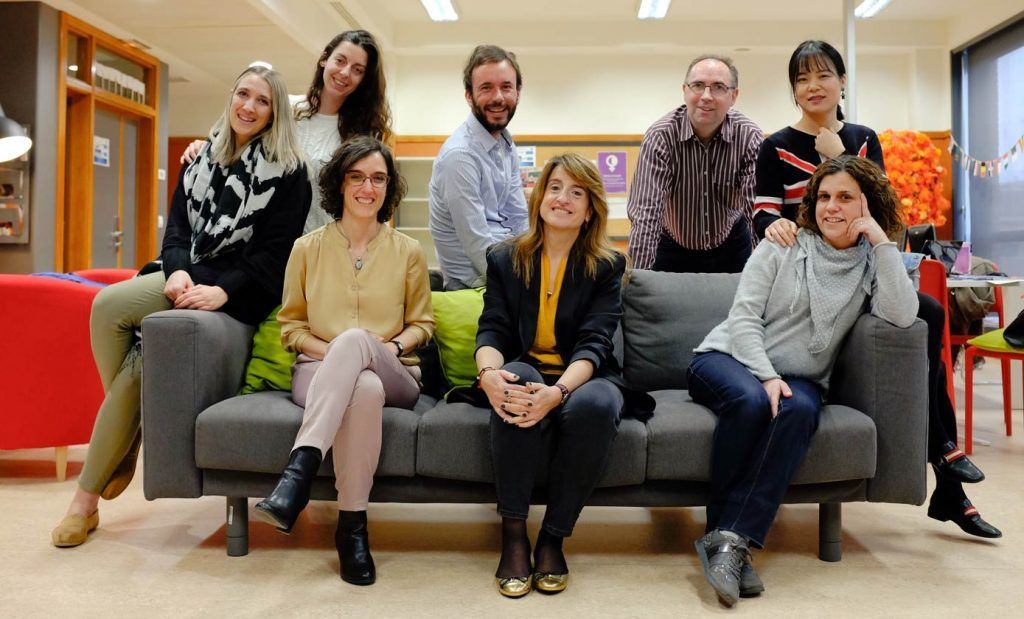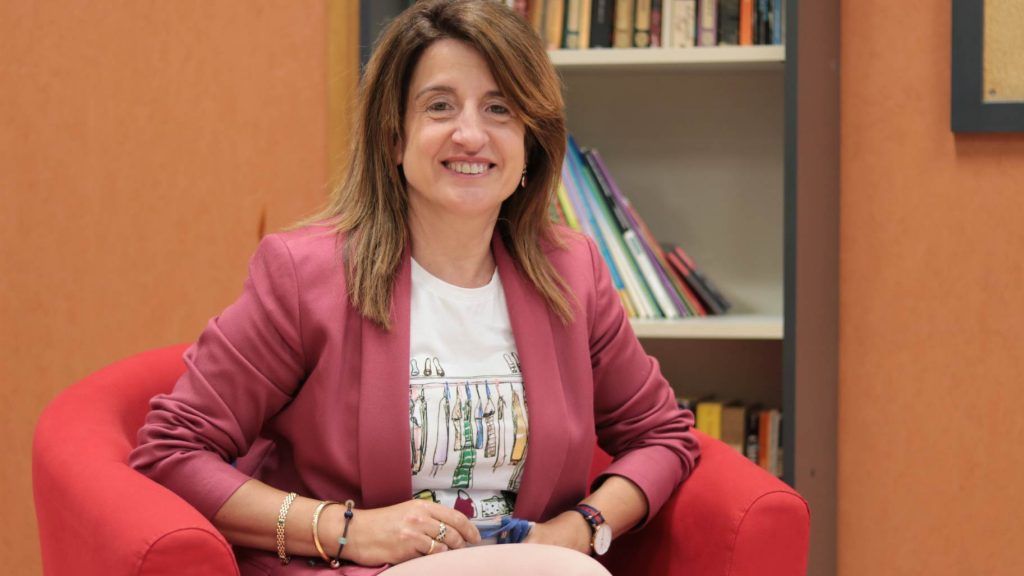Alicia Aranda is the head of the Languages Service at our university. Her team has seen a significant increase in the number of students wanting to learn English, while the arrival of international students has resulted in the addition of Spanish lessons and new services.
It seems clear that at this point speaking foreign languages stops being an added value and becomes something essential for those who want a better job in the future. Luckily, an international university like CEU Valencia is prepared to face the challenge.

The Languages Services is in fact a very good example of the internationalization process CEU Valencia has undergone in the last years. Here one can find teachers from Spain, France, the UK, Ireland, and even China – a team of linguists with a broad experience in teaching languages to Spanish and non-Spanish students. And also a team where three teachers currently hold a PhD and have carried out research projects in several fields related to language and culture.
The benefits of learning foreign languages
Tell us Alicia, what would you you consider an international curriculum and what is special about it?
In my opinion, an international curriculum should include three main elements. Firstly, professional experience according to the candidate’s studies or degree. But of course, this applies not only to their knowledge, but also to his or her work experience. Talking about languages, what would be interesting is to see some experience in the use of those languages: if the candidate has worked for an international company or within an international team, for instance.
“All students should be aware of the great benefit of studying in an international university like CEU.”
In second place, I would say that extra curricular activities are very important, like volunteering. In this sense, here at the university many students have participated in our missions, helping people in need in Africa or Philippines. It is in this context that we understand students will have the need to use a language different to their native tongue.
The third element would be a language certification. In a curriculum you need to prove that you have a certain language level, and having a certificate is a way to prove this. It is the physical evidence that you have the skills needed but of course, it is your job to show in the interview that you really master the language!
How do you think companies view students who have had an international experience or have obtained their degree in another country?
These students have a fundamental advantage; their language skills have improved considerably. Therefore when students do not find jobs in Spain, they should try to go abroad, then take an exam and achieve the necessary language level required to work in most Spanish and international firms. Again, I would highly recommend students to sit an exam and get a certificate with recognized validity: employers will always ask for an official certificate.
Would you say that speaking foreign languages is something basic in today’s professional world?
English, without doubt, is the international language and I would say it is, fundamentally, indispensable in the professional world.
Nevertheless, in our service we encourage students to learn other languages, such as French, German and Chinese. Students who want to work in Germany, for example, are requested to have a certain level of German. And we cannot forget Spanish. Spanish is a language that attracts more and more foreign students. Our work here in the Languages Service has changed a lot during the last few years due to this fact.
An increasingly global campus
Which are the main challenges the Languages Service has faced in the last years?
The main change our service has experienced has been without a doubt the teaching of Spanish. It has been a huge change since Spanish classes were traditionally focused on Erasmus+ students. But now we have more international students studying Spanish than Spanish students studying English! Of course, we had to reorganize our structure to respond to this demand.
“Learning a foreign language may seem a hard task for some people but, with a little effort, they will be able to speak and use the target language.”
On the other hand, we have also started collaborating with Instituto Cervantes in order to certify the level of Spanish of our international students. Our university is now an official examination centre for the DELE and SIELE exams, the two main certificates by the Instituto Cervantes. We also cooperate with different faculties to establish the language requirements for each of the degrees, and we help them track the level of their students.
And to think this change is due to our internationalization process!
It is a fact that in the past we had hardly any foreign students. Nowadays we have not only Erasmus+ students but also students from Taiwan, Germany, Norway, France or even the US, who come to pursue one of our international degrees.
To compare language skills, which level is higher: the English and Spanish level of international and Erasmus+ students or the level of Spanish students?
Foreign students are the winners! Their level of English is higher than the level of our Spanish Students. Their language skills vary a lot depending on the education system of their home country.

In my opinion, Spanish do not learn other languages because ours is widely spoken, so they feel they do not have the need. And films and TV series are dubbed; this makes a difference with the rest of European countries, where children have the opportunity of listening to English on TV since they are born. That is why I always recommend students to watch films and television series in English, even if it is shown with Spanish subtitles.
Would you say that the interest in learning another language has increased over the past few years?
Students need to reach B2 level in English, which is considered high intermediate level. This is the main reason why they attend English courses. However, in some cases students are self-motivated to learn English, since they will need C1 level for professional reasons.
Much more than just teaching languages
As head of the Languages Service, have you seen any changes in language teaching methods?
Language teaching methods have changed dramatically over the years. Teachers now focus more on individual and group needs, because we know everyone learns differently and it is better for us. We use more technology to communicate contents and to get access to software and all the free resources on the internet. It helps us teach better and it is fun for our students. Our tutors are familiarized with modern technologies.
“We want both international and Spanish students to feel at ease at our university but also make them aware of the great necessity of speaking foreign languages.”
In my opinion, teaching methods have to be adapted to the type of students we teach. At times because of time constraints teachers have to take a more traditional path, and do not have time to use as many communicative activities as we would want to. However, it is impossible, or very difficult, to use only one method in a language class.
I think it is essential to create an environment of mutual support, trust and understanding, between the teacher and the student. Learning a foreign language may be quite a hard task for some people, and they need to feel confident in the class, they need to feel that, with a little effort, they will be able to speak and use the target language.

Some students are not used to a communicative method and prefer more theory than practice. For example when you ask them to present an oral piece of work, they are less inclined to do it. Erasmus+ students, for example, are more open to a practical method. The teacher should then use an eclectic approach by applying what we think is the best option to help our students. I would say that the method we use will depend on the teacher’s style and the students’ needs. Variety and flexibility are a must in any foreign language class.
And what would you tell a student who is thinking about studying in a different language but is still hesitating?
I would tell them that even though it seems hard to study in a place where you do not master their native language, in an international university like this one it is not such a problem. Firstly, I would recommend that they get some training prior to their arrival here, but they don’t need to be proficient to start studying at CEU Valencia! Although the entry level depends on the degree, an intermediate level is normally enough because here they will find the resources they need to improve their skills throughout their studies.
For the lessons, students can rely on a platform called Blackboard where all the contents are uploaded. Blackboard is a very useful tool in case of any difficulty understanding the lessons. Students will always have the support of this platform, their classmates, the teachers and of course the Languages Service: the whole community will try to help them out!

Studying abroad is a new and exciting opportunity to learn about a new culture, a new lifestyle and they should get advantage of staying in a new country and learn the language of that country!
The Languages Service offers courses and activities throughout the academic year, and has its own intercultural space where they organize different events for students: exchanges, talks and workshops… With two translators on campus, who work to make all the documents at the university accesible, Alicia Aranda and her team can take pride in the excellent and high-quality service they provide to our community!



